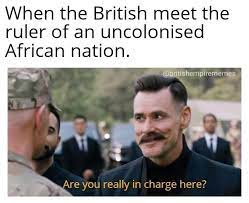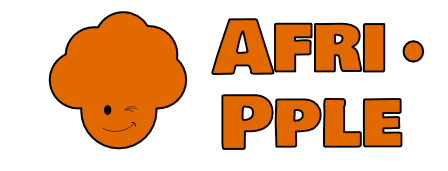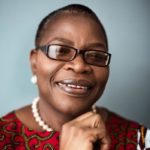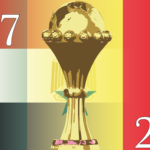On the Journey to becoming African
It’s actually a thing! I’m inflicted by this thing I call AIS, African imposter Syndrome. It’s serious!
Let me explain.
I was born and brought up in Nigerian England. It’s a phenomenon known by many first-gen immigrants! When outside the house, you eat British food, go to the British school even speak British English. But as soon as you go home, you are bombarded, with the smells of Jollof rice, the threat of beatings, and this language that people say you should know, but everyone refuses to teach you (in my case Igbo).
But where did I catch my case of AIS??
Catching the sickness
Well in school, you don’t really learn much about African nations besides, corruption and Mugabe; and if you’re lucky you get a bit of Nelson Mandela. But, the perception of many African nations was not the best, especially Nigeria. We’re actually in the Edexcel exams textbook, with case studies on 419. Can you imagine! We are famous for very wrong reasons.
It’s a subtle way of teaching you, that the place where you come from…yeah, not the best

On the other side, in the household, I get told about the issues in the workplace working as a black person in Britain, why Nigeria is such an amazing place, how it’s so freeing, and there is so much opportunity. It’s your heritage, and you should be proud to be from there…but honestly, I didn’t really feel it.
So before I turned 10 I found myself making a rather substantial decision on who I decided to align with. And that’s where I caught my ailment, I was too Nigerian to be British but too British to be Nigerian.
Picking a Side
One day, I found out which side I was on when the BBC aired this documentary called “Welcome to Nigeria”. It was meant to be this groundbreaking work, to acknowledge the large presence of Nigerians in the British viewership. We had made it! We will be on TV!
Well, the documentary came out, and… It was disappointing, to say the least. The documentary centered around Lagos, but not the Lagos most Nigerians would reference, just this rubbish dump in Olusosun. This was Lagos, this was Nigeria, and to a large extent, this is their definition of Africa. Rubbish, poverty, flies, etc.
I remember feeling so angry, without anyone even having to tell me. I’d been to Lagos, so I knew there was more to it than this, sure it’s not London, but it was much more than this! It was at that point it dawned on me, that we can’t be leaving our story to be told by those who look down on us, and are a large part of the reason why our story is the way it is. And yes, I said our because it was at this point I realized that it was something I wanted to be part of.
I would love to say that led to a certain African “wokeness”, and I went on to learn everything I could. Nope, that’s a lot, but it did inform a lot of the directions I started taking school work, whenever I could.
The Awakening
You know that thing, where you are okay with complaining about your family or siblings because they are yours, but then when someone else says something, you are ready to go to war.
Right because as annoying as siblings can be, they are yours, and you love them. That’s how I felt about Nigeria after living there and going to school abroad. When people talked badly about the country, I was ready to go! While I was in Nigeria I honestly didn’t think too hard about it, but after I left and people started questioning the country, I suddenly got interested in learning the most.
I was giving a talk for example on reverse brain drain, on how people were actually going back to their African countries because they are seeing the opportunities to build and grow in the continent. And this Austrian dude, was like can we fact-check that! I was so mad! Is it so hard to believe!
While abroad I also found myself mixing with other Africans, from countries honestly until I met them I had no idea about, like Burundi or Botswana, or Namibia. People from these countries ended up becoming some of my best friends. And when we hung out, although we were from completely different places we were Africans, with good senses of humor, with intermediate to good dance moves, and a love to laugh and make fun of each other. We were a family outside our families. And with that, I gained this guilt of why don’t I know more about those around me?
We did a trivia night one time, and I found out that I was not the only one who felt like that. It’s funny, as protective as I get about Europeans looking down on my country. I really didn’t know enough to put a good argument against them. It’s one thing to claim to be from a place, but it’s another thing to take the time to learn about it and really own it.
This is why I am embarking on this journey, to cure my case of AIS. I want to change how the world sees this continent that I claim, part of that is learning more about it myself and helping other Africans get that feeling of ownership.
This is the first part of learning to be African!


